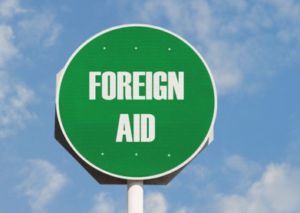UK Parliament approves foreign aid cut
 The UK Parliament has voted in favour of the Government’s £4 billion cut in foreign aid despite opposition from some MPs representing the governing Conservative Party.
The UK Parliament has voted in favour of the Government’s £4 billion cut in foreign aid despite opposition from some MPs representing the governing Conservative Party.
The Prime Minister, Boris Johnson, said that in light of the high domestic expenditure caused by the COVID-19 pandemic, the Conservative government had to reduce a 2015 legal requirement to spend 0.7 per cent of national income on overseas aid.
On Tuesday, MPs voted to keep the new aid budget at 0.5 per cent.
Mr Johnson told parliament that the government had spent £407 billion during the pandemic to “shelter our people from an economic hurricane never before experienced in living memory”.
He said that as a result, “there must inevitably be consequences”.
However, he added that the cut was temporary and that the UK was still spending “at least £10bn” on aid.
“This is not an argument about principle,” Mr Johnson said.
“The only question is when we return to 0.7 per cent and my purpose today is to describe how we propose to achieve this shared goal in an affordable way.”
“The government will of course review the situation every year [and] as soon as circumstances allow and the tests are met, we will return to the target…”
During the 2019 general election campaign, the Conservatives pledged to commit to the 0.7 per cent spending on overseas aid.
UK charities have been critical of the reduction.
Reacting in April to the government’s announcement on the aid cut, Sam Nadel, Oxfam’s Head of Policy and Advocacy, said: “We are extremely concerned that it will be those struggling to survive some of the world’s worst humanitarian crises who will bear the brunt of these cuts.
“For millions of people around the world, today’s announcement will mean no clean water, no food when they are hungry and no medicines when they are sick.
“Ministers should urgently think again – keeping our promises to the world’s poorest matters more than ever in the midst of a global pandemic,” Mr Nadel added.
Simon Starling, Director of Policy, Advocacy and Research at Bond, an international development network, noted earlier this month: “Transparency around the aid cuts process has been lacking.
“The government has released no overall picture of the cuts [and] many NGOs are still waiting, a quarter of the way into the financial year, to hear if lifesaving programmes have been cut or not.”
He added: “What is clear is that the era of ‘aid in the national interest’, designed to promote UK interests overseas is set to continue, and the previous mantra of providing assistance ‘where its most needed’ is over.
“This risks many countries falling further behind in development, health and other outcomes, and as COVID-19 has demonstrated, this will have consequences for all of us.”
But Prime Minister Johnson told Parliament on Tuesday: “Last year, we dissolved the old divide between aid and diplomacy… by creating the new Foreign, Commonwealth and Development Office.
“And in doing so, my whole objective was to ensure that every diplomat in our service was actuated by the mission and vision of our development officials and that our aid was better in tune with our national values and our desire to be a force for good in the world.”
Source: GNA
